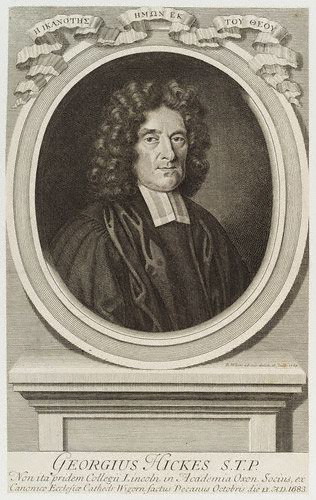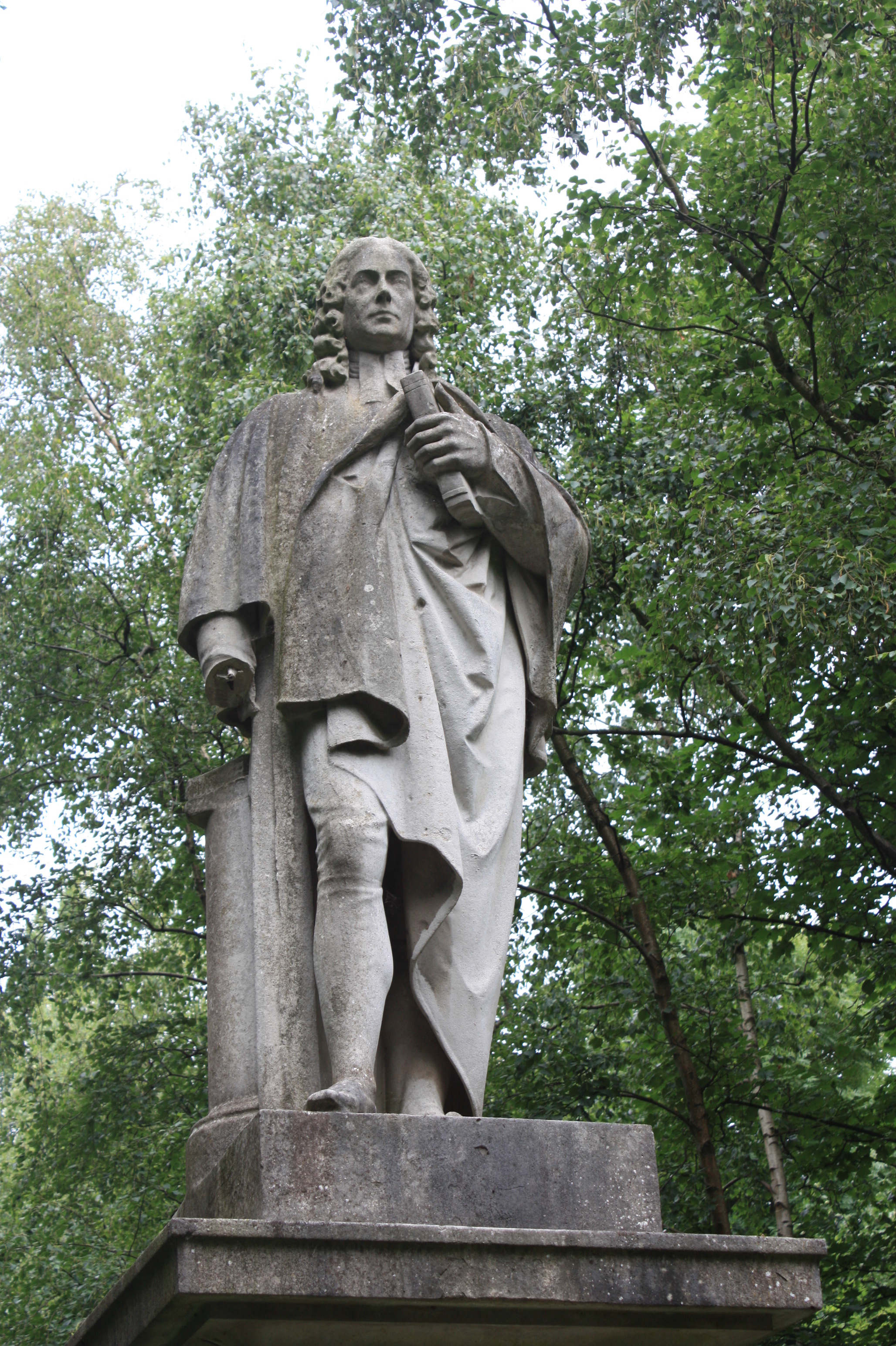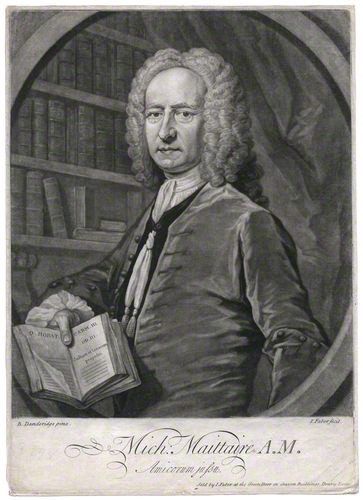|
James Greenwood (grammarian)
James Greenwood (c.1683 – 1737) was an English grammarian. Life Greenwood was for some time usher to Benjamin Morland (1657–?) at Hackney Academy, but soon after 1711 opened a boarding-school at Woodford, Essex. At midsummer 1721, when Morland became high-master, he was appointed surmaster of St. Paul's School, London, a post which he held until his death on 12 September 1737.Gentleman's Magazine; 1737, p. 574 He left a widow, Susannah. Works He is mostly known as the author of ''An Essay towards a practical English Grammar. Describing the Genius and Nature of the English Tongue'', &c., 12mo, London, 1711 ; 2nd edit. 1722; 3rd edit. 1729; 5th edit. 1753 (reprinted by the University of Michigan Library, 2009). It received the praises of Andrew Ross, Professor of Humanity at the University of Glasgow, Dr. George Hickes, John Chamberlayne, and Isaac Watts Isaac Watts (17 July 1674 – 25 November 1748) was an English Congregational minister, hymn writer, theologian, an ... [...More Info...] [...Related Items...] OR: [Wikipedia] [Google] [Baidu] |
Linguist
Linguistics is the scientific study of human language. It is called a scientific study because it entails a comprehensive, systematic, objective, and precise analysis of all aspects of language, particularly its nature and structure. Linguistics is concerned with both the cognitive and social aspects of language. It is considered a scientific field as well as an academic discipline; it has been classified as a social science, natural science, cognitive science,Thagard, PaulCognitive Science, The Stanford Encyclopedia of Philosophy (Fall 2008 Edition), Edward N. Zalta (ed.). or part of the humanities. Traditional areas of linguistic analysis correspond to phenomena found in human linguistic systems, such as syntax (rules governing the structure of sentences); semantics (meaning); morphology (structure of words); phonetics (speech sounds and equivalent gestures in sign languages); phonology (the abstract sound system of a particular language); and pragmatics (how social c ... [...More Info...] [...Related Items...] OR: [Wikipedia] [Google] [Baidu] |
Hackney Academy
Newcome's School was a fashionable boys' school in Hackney, then to the east of London, founded in the early 18th century. A number of prominent Whig families sent their sons there. The school closed in 1815, and the buildings were gutted in 1820. In 1825 the London Orphan Asylum opened on the site. Today the Clapton Girls' Academy is located here. History Newcome's school was established in the early 18th century. During the 18th century and early 19th century, Hackney was home to schools of all kinds, including a number of significant dissenting academies. It was considered a healthy area, close to London and with easy access in all weathers via the Old North Road. Many prominent Whig families sent their sons to the school, resulting in a large number of Members of Parliament having received their education there. Dr. Henry Newcome, who gave the school its name, was noted for Whig political principles, and the school stayed in the family for three generations, to 1803. Th ... [...More Info...] [...Related Items...] OR: [Wikipedia] [Google] [Baidu] |
Woodford, Essex
Woodford is a town in East London, within the London Borough of Redbridge. It is located north-east of Charing Cross. Woodford historically formed an ancient parish in the county of Essex. It contained a string of agrarian villages and was part of Epping Forest. From about 1700 onwards, it became a place of residence for affluent people who had business in London; this wealth, together with its elevated position, has led to it being called the ''Geographical and social high point of East London''. Woodford was suburban to London and after being combined with Wanstead in 1934 it was incorporated as a municipal borough in 1937. It has formed part of Greater London since 1965 and comprises the neighbourhoods of Woodford Green, Woodford Bridge, Woodford Wells and South Woodford. The area is served by two stations on the Central line of the London Underground: Woodford and South Woodford. History Toponymy Woodford appears in the 1086 Domesday Book as ''Wdefort'', although its e ... [...More Info...] [...Related Items...] OR: [Wikipedia] [Google] [Baidu] |
Gentleman's Magazine
''The Gentleman's Magazine'' was a monthly magazine founded in London, England, by Edward Cave in January 1731. It ran uninterrupted for almost 200 years, until 1922. It was the first to use the term '' magazine'' (from the French ''magazine'', meaning "storehouse") for a periodical. Samuel Johnson's first regular employment as a writer was with ''The Gentleman's Magazine''. History The original complete title was ''The Gentleman's Magazine: or, Trader's monthly intelligencer''. Cave's innovation was to create a monthly digest of news and commentary on any topic the educated public might be interested in, from commodity prices to Latin poetry. It carried original content from a stable of regular contributors, as well as extensive quotations and extracts from other periodicals and books. Cave, who edited ''The Gentleman's Magazine'' under the pen name "Sylvanus Urban", was the first to use the term '' magazine'' (meaning "storehouse") for a periodical. Contributions to the ... [...More Info...] [...Related Items...] OR: [Wikipedia] [Google] [Baidu] |
University Of Michigan Library
The University of Michigan Library is the academic library system of the University of Michigan. The university's 38 constituent and affiliated libraries together make it the List of largest libraries in the United States#Largest research libraries, second largest research library by number of volumes in the United States. As of 2019–20, the University Library contained more than 14,543,814 Volume (bibliography), volumes, while all campus library systems combined held more than 16,025,996 volumes. As of the 2019–2020 fiscal year, the Library also held 221,979 Periodical literature, serials, and over 4,239,355 annual visits. Founded in 1838, the University Library is the university's main library and is housed in 12 buildings with more than 20 libraries, among the most significant of which are the Shapiro Undergraduate Library, Hatcher Graduate Library, Special Collections Library, and Taubman Health Sciences Library. [...More Info...] [...Related Items...] OR: [Wikipedia] [Google] [Baidu] |
University Of Glasgow
, image = UofG Coat of Arms.png , image_size = 150px , caption = Coat of arms Flag , latin_name = Universitas Glasguensis , motto = la, Via, Veritas, Vita , mottoeng = The Way, The Truth, The Life , established = , type = Public research university Ancient university , endowment = £225.2 million , budget = £809.4 million , rector = Rita Rae, Lady Rae , chancellor = Dame Katherine Grainger , principal = Sir Anton Muscatelli , academic_staff = 4,680 (2020) , administrative_staff = 4,003 , students = () , undergrad = () , postgrad = () , city = Glasgow , country = Scotland, UK , colours = , website = , logo ... [...More Info...] [...Related Items...] OR: [Wikipedia] [Google] [Baidu] |
George Hickes (divine)
George Hickes (20 June 1642 O.S. – 15 December 1715 O.S.) was an English divine and scholar. Biography Hickes was born at Newsham, near Thirsk, Yorkshire, in 1642. After going to school at Thirsk he went to Northallerton Grammar School in 1652 where he was a classmate of Thomas Rymer. In 1659 he entered St John's College, Oxford, whence after the Restoration he removed to Magdalen College and then to Magdalen Hall. In 1664 he was elected fellow of Lincoln College, and in the following year proceeded M.A. In 1673 he graduated in divinity, and in 1675 he was appointed rector of St Ebbes, Oxford. In 1676, as private chaplain, he accompanied the Duke of Lauderdale, the royal commissioner, to Scotland, and shortly afterwards received the degree of D.D. from St Andrews. In 1680 he became vicar of All Hallows, Barking, London; and after having been made chaplain to the king in 1681, he was in 1683 promoted to the deanery of Worcester. He opposed both James II's declaration of i ... [...More Info...] [...Related Items...] OR: [Wikipedia] [Google] [Baidu] |
John Chamberlayne
John Chamberlayne (c.1668–1723) was an English writer, translator, and courtier. Life He was a younger son of Edward Chamberlayne and his wife Susannah Clifford. In 1685 he entered Trinity College, Oxford as a commoner. Leaving Oxford without a degree, he proceeded to the University of Leyden, where on 12 May 1688 he entered himself as a student. Here, it would seem, he chiefly studied modern languages,Sloane Manuscript 4040, f. 104 of which, according to contemporary report, he knew sixteen. On his return he filled various offices about the court. He was successively gentleman waiter to Prince George of Denmark, gentleman of the Privy Chamber first to Queen Anne and then to King George I. He was also secretary to Queen Anne's Bounty Commission, and on the commission of the peace for Middlesex. In 1702 Chamberlayne was elected a fellow of the Royal Society. Chamberlayne died at his house in Petty-France (now York Street), Westminster on 2 November 1723, and on 6 November w ... [...More Info...] [...Related Items...] OR: [Wikipedia] [Google] [Baidu] |
Isaac Watts
Isaac Watts (17 July 1674 – 25 November 1748) was an English Congregational minister, hymn writer, theologian, and logician. He was a prolific and popular hymn writer and is credited with some 750 hymns. His works include "When I Survey the Wondrous Cross", "Joy to the World", and " Our God, Our Help in Ages Past". He is recognized as the "Godfather of English Hymnody"; many of his hymns remain in use today and have been translated into numerous languages. Life Watts was born in Southampton, Hampshire, England, in 1674 and was brought up in the home of a committed religious nonconformist; his father, also Isaac Watts, had been incarcerated twice for his views. Watts had a classical education at King Edward VI School, Southampton, learning Latin, Greek, and Hebrew. Watts displayed a propensity for rhyme from an early age. He was once asked why he had his eyes open during prayers, to which he responded: He received corporal punishment for this, to which he cried: Watts ... [...More Info...] [...Related Items...] OR: [Wikipedia] [Google] [Baidu] |
Caroline Of Ansbach
, father = John Frederick, Margrave of Brandenburg-Ansbach , mother = Princess Eleonore Erdmuthe of Saxe-Eisenach , birth_date = , birth_place = Ansbach, Principality of Ansbach, Holy Roman Empire , death_date = , death_place = St James's Palace, London, Great Britain , burial_date = 17 December 1737 , burial_place = Westminster Abbey, London Caroline of Brandenburg-Ansbach (Wilhelmina Charlotte Caroline; 1 March 1683 – 20 November 1737) was Queen of Great Britain and Ireland and Electress of Hanover from 11 June 1727 until her death in 1737 as the wife of King George II. Caroline's father, Margrave John Frederick of Brandenburg-Ansbach, belonged to a branch of the House of Hohenzollern and was the ruler of a small German state, the Principality of Ansbach. Caroline was orphaned at a young age and moved to the enlightened court of her guardians, King Frederick I and Queen Sophia Charlotte of Prussia. At the Prussian court, her previously limited education was ... [...More Info...] [...Related Items...] OR: [Wikipedia] [Google] [Baidu] |
Michael Mattaire
Michel Maittaire (also Michael) (1668 – 7 September 1747) was a French-born classical scholar and bibliographer in England, and a tutor to Lord Philip Stanhope. He edited an edition of Quintus Curtius Rufus, later owned by Thomas Jefferson. His works included a grammar of English (1712). Life He was born in France of Huguenot parents, who around the time of the Revocation of the Edict of Nantes moved to England. He obtained a king's scholarship at Westminster School in 1682. Richard Busby, then head-master, made him concentrate on the study of Greek and Latin. On leaving school he went to The Hague, where he was received by the Vaillants, and then to Paris. On returning to England he gained the goodwill of Robert South, at the time a canon of Christ Church, Oxford; it is said that he compiled a list of the Greek words that were wrongly accented in the works of William Sherlock. South made him 'canoneer' student of Christ Church, and he took the degree of M.A. on 23 March 1696, ... [...More Info...] [...Related Items...] OR: [Wikipedia] [Google] [Baidu] |






